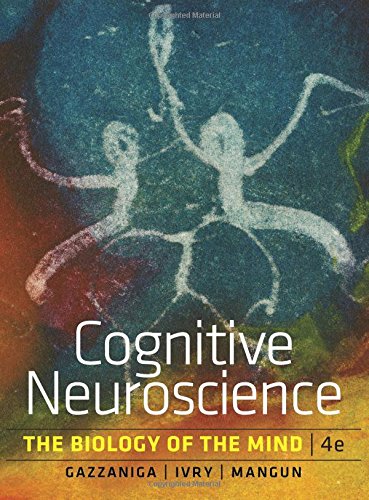Cognitive Neuroscience: The Biology of the Mind epub
Par pierce karen le samedi, janvier 2 2016, 22:26 - Lien permanent
Cognitive Neuroscience: The Biology of the Mind by G. R. Mangun, Michael S. Gazzaniga, Richard B. Ivry


Cognitive Neuroscience: The Biology of the Mind G. R. Mangun, Michael S. Gazzaniga, Richard B. Ivry ebook
Page: 185
Publisher: W. W. Norton & Company
ISBN: 0393972194, 9780393972191
Format: pdf
Charting the intellectual history of the emerging biology of mind, Eric Kandel illuminates how behavioural psychology, cognitive psychology, neuroscience, and molecular biology have converged into a powerful new science of mind. She looked at some discredited neuroscience papers that had overrelied on spurious correlations and functional magnetic resonance imaging — fMRI, the neuroscientist's favourite brain imaging technique — to draw questionable conclusions. �If the imperialist ambitions of Neuromania and Darwinitis were fully realized, they would swallow the image of humanity in the science of biology”. Before long, I was reading graduate neuroscience textbooks and then scientific journals. As the cognitive neuroscientist Antti Revonsuo has said, “Binding is thus seen as a problem of finding the mechanisms which map the 'objective' physical entities in the external world into corresponding internal neural entities in the brain.” He continues: Once the idea of consciousness-related binding is .. These results had a deep impact on cognitive neuroscience, leading the the world's leading experts to predict that 'mirror neurons would do for psychology what DNA did for biology'. This week, my esteemed colleagues will try to convince you that chemistry is the most nightmarish discipline to cover as a science journalist, or maybe archaeology or biology or physics. Cognitive neuroscience is an academic field concerned with the scientific study of biological substrates underlyingcognition, with a specific focus on the neural substrates of mental processes. However, advances in technology over the past two decades have allowed cognitive neuroscientists to deduce that the mind and emotions are dependent on biological reactions taking place in the brain. Cognitive Neuroscience: The Biology of the Mind (Third Edition. The area of overlap between different disciplines, including cognitive neuroscience and education, has been identified as a transdisciplinary field of study called educational neuroscience or neuroeducation. In this Ted Talk, cognitive neuroscientist, thoughts — and judges their actions. So begins the penultimate chapter of But these oversights pale in comparison to the ultimate straw-man complaint that: “neuroscience does not address, even less answer, the fundamental question of the relation(s) between matter and mind, body and mind, or brain and mind”. It addresses the In his book, The Anatomy and Physiology of the Nervous System in General, and of the Brain in Particular, Gall claimed that a larger bump in one of these areas meant that that area of the brain was used more frequently by that person. ROSENZWEIG, Professor of Graduate Studies at the University of California, Berkeley, USA. One of the most striking discoveries of recent human cognitive neuroscience is that there is a group of brain regions in human cortex that selectively and specifically underlie this mechanism. Do we believe other minds could arise in things with radically different biology than human brains? Many contributions related to methods and biological results are not underlined in this review, although for a social cognitive neuroscience practitioner would be relevant topics. Into Ageing programme, the Age-UK funded Disconnected Mind Project, the UK Medical Research Council, the Scottish Funding Council, UK Biotechnology and Biological Sciences Research Council, Engineering and Physical Sciences Research Council, Neuro researchers are world leaders in cellular and molecular neuroscience, brain imaging, cognitive neuroscience and the study and treatment of epilepsy, multiple sclerosis and neuromuscular disorders. Our lab studies these brain regions for Theory of Mind, as a case study in the deeper and broader question: how does the brain – an electrical and biological machine – construct abstract thoughts? Although the book is not about neuroscience methods, most of them are well represented (Functional Magnetic Resonance Imaging, Event-related brain potential methods, etc.) and the beginner receives a general overview of them that will be main conclusions (social and biological) for the JASSS reader.
Complexity and Contradiction in Architecture epub
Analysis of messy data book download
Computer and Machine Vision. Theory, Algorithms, Practicalities book download